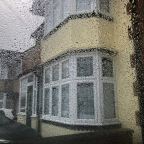
Sixty per cent of UK species in decline, groundbreaking study finds
UK nature is in trouble – that is the conclusion of a groundbreaking report published today by a coalition of leading conservation and research organisations.
Scientists working side-by-side from 25 wildlife organisations have compiled a stock take of our native species – the first of its kind in the UK. The report reveals that 60% of the species studied have declined over recent decades. More than one in ten of all the species assessed are under threat of disappearing from our shores altogether.
The State of Nature report will be launched by Sir David Attenborough and UK conservation charities at the Natural History Museum in London this evening (Wednesday, May 22), while simultaneous events will be held in Edinburgh, Cardiff and Belfast with a more local ‘Question Time’ event to be held in Bristol on 19 June.
Sir David Attenborough said: “This groundbreaking report is a stark warning – but it is also a sign of hope.
“For 60 years I have travelled the world exploring the wonders of nature and sharing that wonder with the public. But as a boy my first inspiration came from discovering the UK’s own wildlife.
“Our islands have a rich diversity of habitats which support some truly amazing plants and animals. We should all be proud of the beauty we find on our own doorstep; from bluebells carpeting woodland floors and delicately patterned fritillary butterflies, to the graceful basking shark and the majestic golden eagle soaring over the Scottish mountains.
“This report shows that our species are in trouble, with many declining at a worrying rate. However, we have in this country a network of passionate conservation groups supported by millions of people who love wildlife. The experts have come together today to highlight the amazing nature we have around us and to ensure that it remains here for generations to come.”
Dr Mark Eaton, a lead author on the report, said: “This report reveals that the UK’s nature is in trouble - overall we are losing wildlife at an alarming rate.
“These declines are happening across all countries and UK Overseas Territories, habitats and species groups, although it is probably greatest amongst insects, such as our moths, butterflies and beetles. Other once common species like the lesser spotted woodpecker, barbastelle bat and hedgehog are vanishing before our eyes.
“Reliable data on these species goes back just 50 years, at most, but we know that there has been a historical pattern of loss in the UK going back even further. Threats including sweeping habitat loss, changes to the way we manage our countryside, and the more recent impact of climate change, have had a major impact on our wildlife, and they are not going away.
“None of this work would have been possible without the army of volunteer wildlife enthusiasts who spend their spare time surveying species and recording their findings. Our knowledge of nature in the UK would be significantly poorer without these unsung heroes. And that knowledge is the most essential tool that conservationists have.”
Tony Whitehead, RSPB South West Public Affairs Officer told The Exeter Daily: “This report shows clearly that nature in the UK is in trouble with 6 out of 10 species declining. We know people care about wildlife so now more than ever is the time to act.”
Tony Richardson, RSPB South West Regional Director said: “I have never taken the South West’s wonderful wildlife and landscapes for granted, and a quick look through the State of Nature report shows me that many of our local species and habitats are in big trouble and if Devon’s nature has a problem, then we all do!”
SPECIES IN DANGER:
BALEARIC SHEARWATER
“The UK’s only globally critically endangered bird, the Balearic shearwater, feeds in south west waters. Its small population is undergoing an extremely rapid population decline owing to a number of threats, in particular predation at breeding colonies in the Mediterranean by introduced mammals and at-sea mortality as a result of fisheries bycatch.”
LOCAL SUCCESS STORY:
URBAN SWIFTS
“Swifts depend heavily on urban areas to nest, returning each year to the same location. The Exeter Swift Project, a partnership between Devon Wildlife Trust, Exeter City Council and RSPB, has resulted in hundreds of new swift nests installed around Exeter. The project also led to the inclusion of swift box provision within the city’s Residential Design Guide, a nationally recognised exemplar document."
How you can help... GET INVOLVED!
RSPB reserves are great places for a day out
Family friendly nature walk with staff from The RSPB Shop, Darts Farm
Saturday 3 March to Saturday 21 December
2 pm-3 pm (Saturdays only)
Price: Free
Contact: 01392 879438
Fan of the outdoors? Family looking for a great afternoon out? Come and take part in our free Saturday weekly guided walk. The staff from the RSPB Shop at Darts Farm, Topsham are offering family-friendly walks that showcase the beautiful surrounding farmland and wetlands - a great chance to get out and see some wildlife.
See a range of farmland birds, as well as dazzling kingfishers,reed buntings and birds of prey such as buzzards and sparrowhawks. The views across to Goosemoor reserve are stunning and our resident expert will be alongside to answer questions and point things out.
Binoculars can be hired from The RSPB Shop - the route provides some great lookout spots along the way.
The walks start at 2 pm every Saturday from The RSPB Shop, Darts Farm.
Birdwatching Walk for the Inexperienced at Dawlish Warren
Wednesday 29 May
9.00am to about 12.00pm (approx)
Price: Free but donations welcomed
Contact details: 01626 821344 or email john@morsey.f2s.com
Morning walk around the Warren (including the hide) looking at sea and estuary birds.
Please note: this event is run by an RSPB volunteer group and organised for group members and interested members of the local community. Therefore, facilities and number of places may be limited.
Directions
Meet at Dawlish Warren fee paying car park under the railway bridge (SX981785) Toilets at start.
Beginner's Birdwatching Course - Spring/Summer 2013
Thursday 28 March to Thursday 18 July
6.30 pm-8.30 pm, selected dates only. See below.
Price: Free
Booking essential
To book contact James Searle, The RSPB Shop, Darts Farm. Tel: 01392 879438
Especially for you! A course at the Estuary Room, Darts Farm, for anyone who would like to take up or has just started birdwatching as a hobby.
There will be lots of tips and hints to help you:
- develop your initial bird identification skills
- select the best equipment for your needs
- understand bird behaviour
- understand migration
- gain insights into other key areas (eg speciation)
COURSE PROGRAMME
Thurs 30 May
Bird behaviour
Bird ID: woodland birds
Thurs 13 June
The work of the RSPB
Bird ID: seabirds
Bird sounds quiz
Thurs 27 June
Speciation
Bird ID: field and countryside birds
Thurs 4 July
Migration
Bird ID:raptors
Thurs 18 July
Favourites and why?
Bird ID: wildfowl
Where do we/you go from here
Course Leader: Chris Lee (RSPB volunteer/experienced birdwatcher).
Guests/RSPB staff at selected sessions.
There will be time available each session for course participants to discuss what has been seen during the week and any issues/problems incurred.
For more news and views from the RSPB or to support their work click here.













